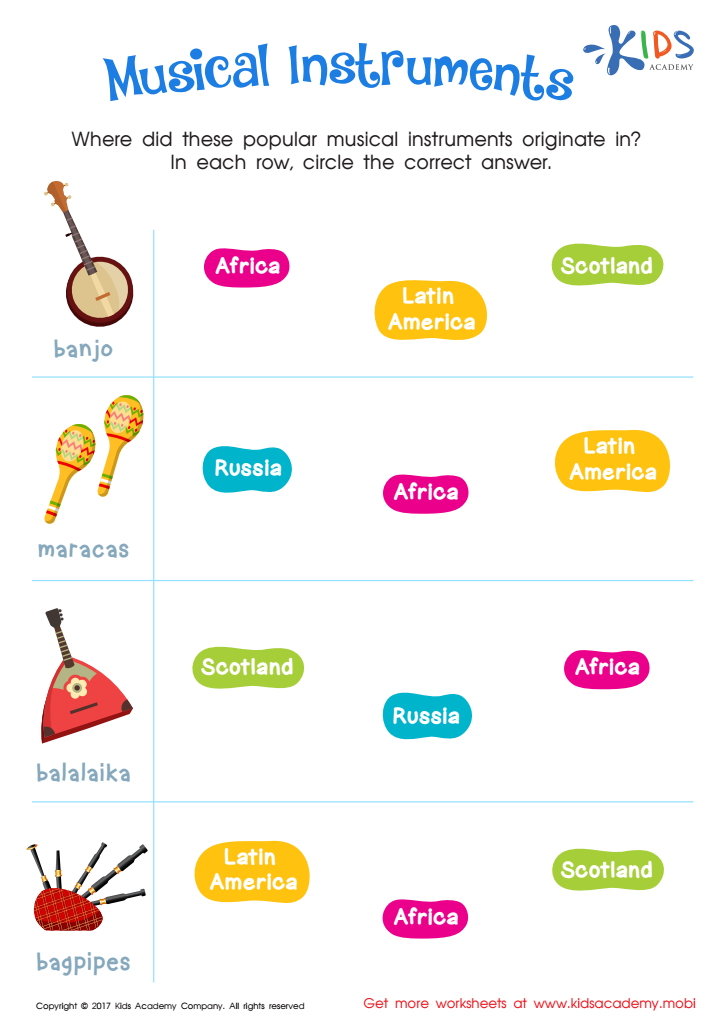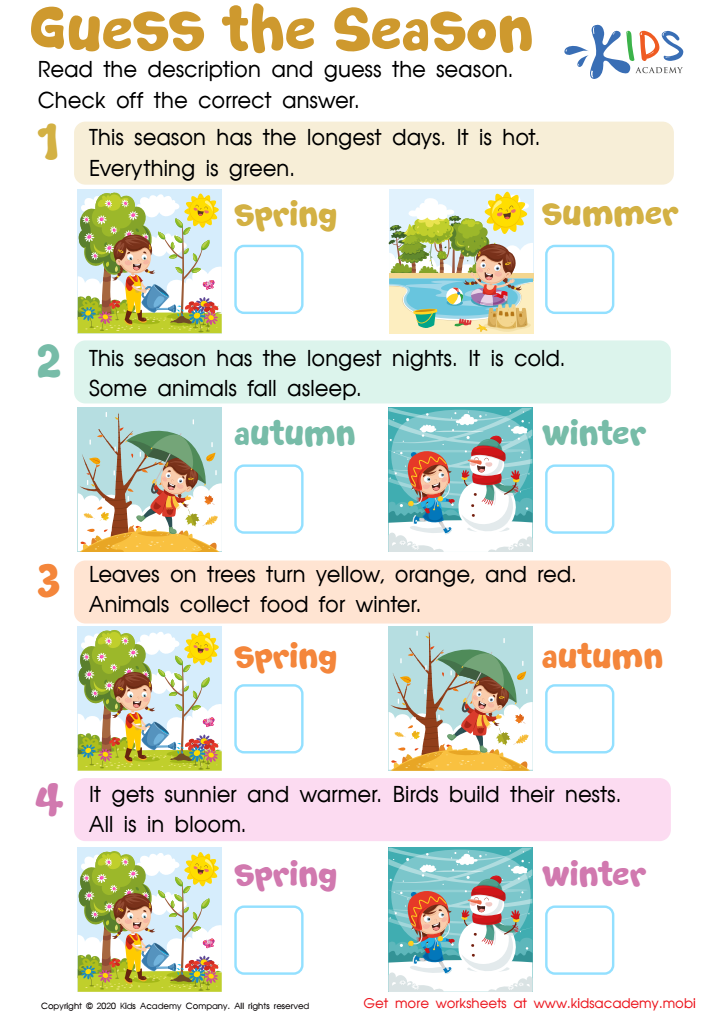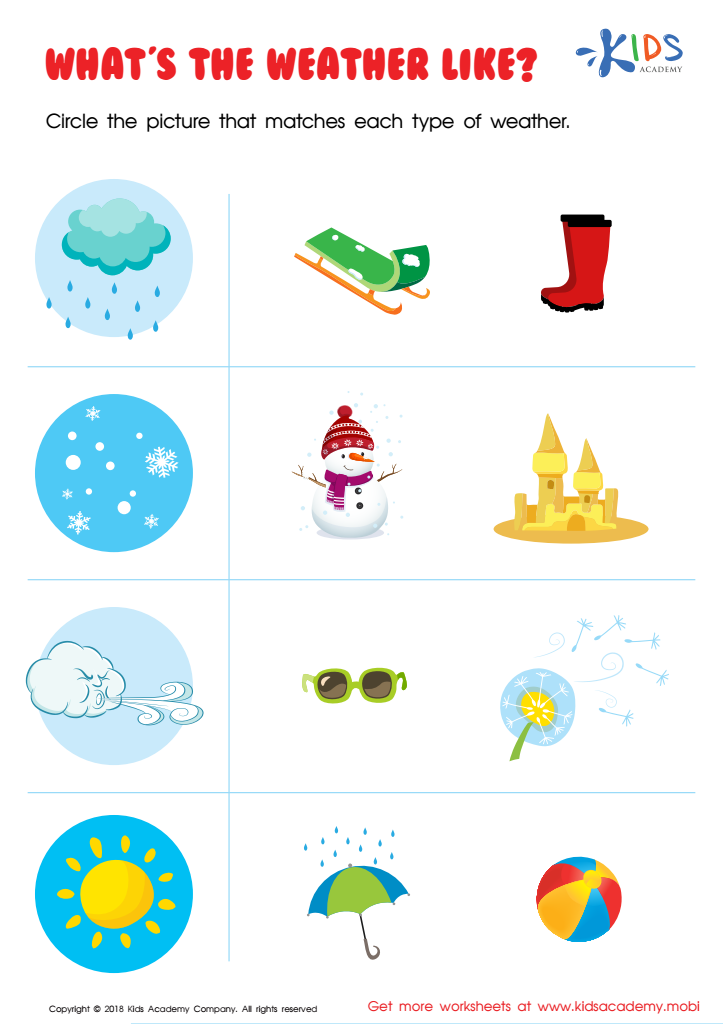Vocabulary Building Normal Geography Worksheets for Ages 3-7
3 filtered results
-
From - To
Enhance your child's understanding of the world with our Vocabulary Building Normal Geography Worksheets, designed for ages 3-7. These engaging worksheets introduce young learners to essential geographical terms while promoting language development and critical thinking skills. Each worksheet features fun activities tailored to help children explore maps, continents, countries, and landmarks, all while fostering vocabulary growth. Perfect for both classroom or home learning, these resources aim to cultivate a love for geography in little ones, making learning enjoyable and effective. Download and print these worksheets today to support your child's educational journey and inspire a lifelong curiosity about the world around them!


Musical Instruments Printable


Guess the Season Worksheet


What's the Weather Like? Worksheet
Vocabulary building, particularly in the context of normal geography, is crucial for children aged 3-7 as it lays the foundation for cognitive development and academic success. At this stage, children's brains are rapidly developing, and their early experiences shape their understanding of the world. Engaging with geographical vocabulary helps children to identify and label places, landscapes, and spatial relationships, fostering their cognitive mapping skills.
Research shows that a strong vocabulary is linked to better reading comprehension and communication skills, both of which are essential for all future learning. For parents and teachers, incorporating geographical terms during discussions, lessons, and activities makes the content relatable and enriching. It encourages curiosity about the world, promotes critical thinking, and enhances social studies and science education.
Furthermore, children learn to express ideas, share experiences, and connect concepts when they have the right vocabulary tools at their disposal. In a globally connected world, fostering an understanding of geography empowers children to appreciate cultural diversity and develop a broader worldview. Ultimately, vocabulary building in geography not only enhances literacy skills but also nurtures informed, engaged, and empathetic future citizens. Thus, parents and educators should prioritize this foundational aspect of early learning.
 Assign to My Students
Assign to My Students

















